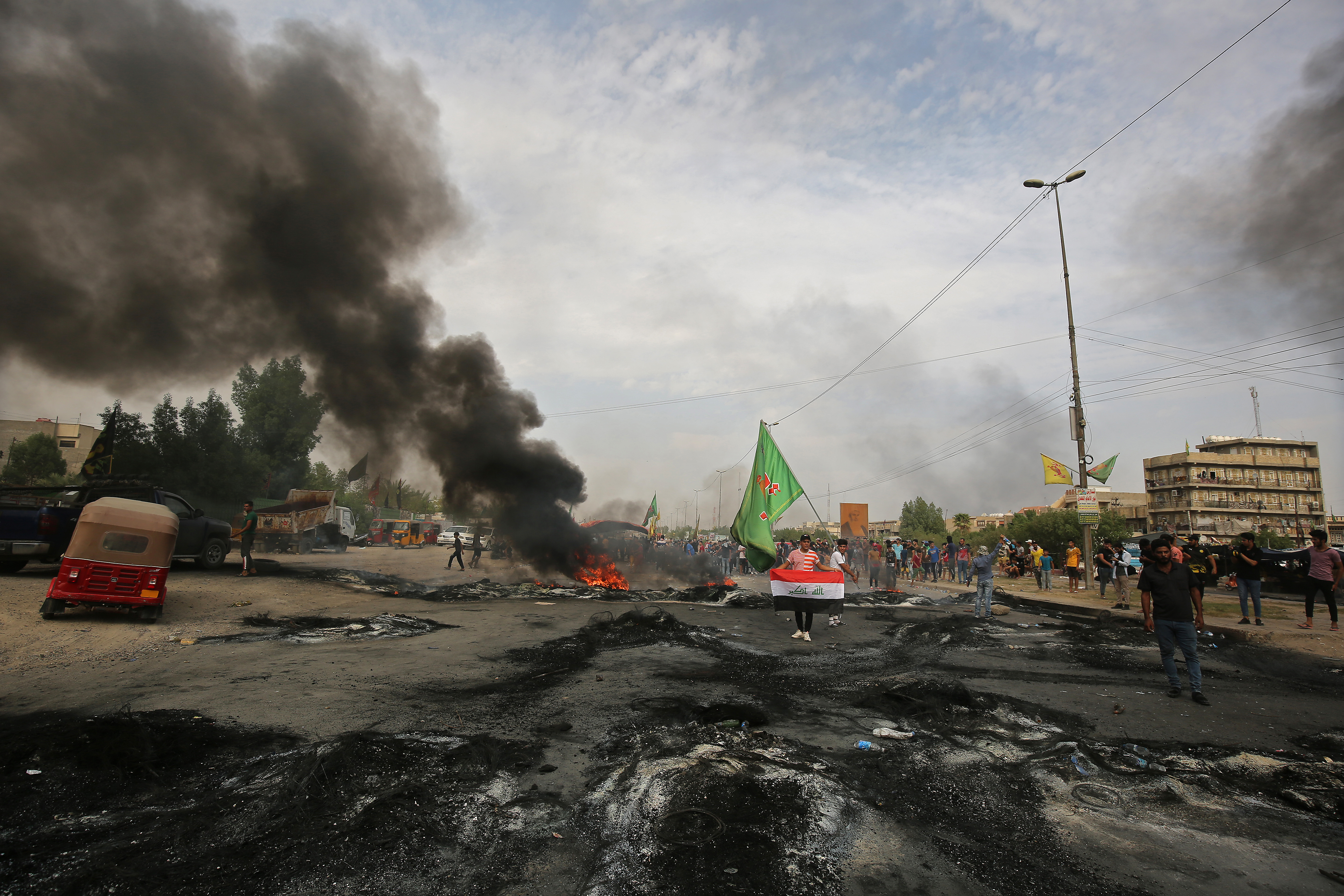PROTESTS
Protests against corruption, poverty and against the government in Iraq are still ongoing. This morning, in Karbala, masked gunmen opened fire against protestors: 22 people were killed and more than 800 injured. It is suspected that the police is behind it. The Chaldean Church, in solidarity with the requests of the people, is calling for dialogue and to stop violence and abuse. Card. Sako in Baghdad visited the wounded, civilians and soldiers, during the protests

This morning fire was opened against protestors in Karbala, south of Baghdad, killing over 20 people and wounding approximately 800, according to medical sources in the city. But the number of casualties is yet to be confirmed. Witnesses described masked gunmen dressed in black that opened fire from a moving vehicle in the square where protestors set up tents for their sit in against Prime Minister Adel Abdul Mahdi, the high poverty rates, widespread corruption and lack of public services. At least 250 people have been killed since the outbreak of the protests in the first days of October. Authorities imposed a curfew in Karbala on Monday, which at this point could be extended to after the initial deadline. The images posted by protestors and journalists on social networks depict the violent repression by the police forces. In Baghdad, Iraqi soldiers were filmed beating up protesting students.
 Last weekend alone, 74 people reportedly died and three thousand were injured. There are also reports of government and public buildings being attacked by the protesters. The reassurances of Prime Minister Adel Abdul Mahdi, who, in a speech to the nation last Friday, promised the creation of a special court to investigate corruption, job creation plans and housing initiatives, failed to placate the protests. The protests are supported by Shiite leader Moqtada al-Sadr, who has a big popular following. The patronage culture of Iraqi politics further complicates the picture. Voters generally choose politicians from their own ethnic or sectarian bloc in the hope that they will be offered jobs in the public sector. It is a system that fosters corruption and nepotism. Fixing it is not an easy task, it takes time and a change of mentality. No coincidence that Iraq is the twelfth most corrupt country in the world, according to Transparency International, the international non-governmental organization dedicated to preventing and combating corruption.
Last weekend alone, 74 people reportedly died and three thousand were injured. There are also reports of government and public buildings being attacked by the protesters. The reassurances of Prime Minister Adel Abdul Mahdi, who, in a speech to the nation last Friday, promised the creation of a special court to investigate corruption, job creation plans and housing initiatives, failed to placate the protests. The protests are supported by Shiite leader Moqtada al-Sadr, who has a big popular following. The patronage culture of Iraqi politics further complicates the picture. Voters generally choose politicians from their own ethnic or sectarian bloc in the hope that they will be offered jobs in the public sector. It is a system that fosters corruption and nepotism. Fixing it is not an easy task, it takes time and a change of mentality. No coincidence that Iraq is the twelfth most corrupt country in the world, according to Transparency International, the international non-governmental organization dedicated to preventing and combating corruption.
Appeal to dialogue. A few days ago the Chaldean Patriarchate issued a statement appealing “to the conscience of the leaders of the country, to seriously listen to the requests of people who are complaining about the state of misery in which they live, urging them to fight corruption and to improve the management of State administration. At the same time, the Chaldean Patriarchate urged the protestors “to remain calm, to respect public property”, while calling on the police “to avoid all forms of abuse and violence against the protestors.”
“This is the time for constructive dialogue, to take concrete steps by seeking qualified figures, known for their honesty and love of their country, to manage national affairs.”
 In solidarity with the people and their request for effective changes, the Chaldean Church is accompanying this period of civil unrest with prayers and concrete gestures. The latest was the visit of Patriarch Mar Louis Sako. Together with the two auxiliaries from Baghdad, Msgr. Basel Yaldo and Msgr. Robert Jarjis, the Patriarch asked to meet the wounded, civilians and soldiers, of the protests, admitted at the Al-Kindi hospital in the Iraqi capital. Led by the hospital’s director, as reported by Baghdadhope website, the patriarch exchanged words and embraces with some of the injured, providing the hospital with the means and resources to purchase necessary medications. As a result of the situation in Iraq, and in Baghdad in particular, Card. Sako had to cancel his planned trip to Hungary where he was supposed to meet President Victor Orbán and Russian President Vladimir Putin. The Patriarch also invited the leaders of the local churches to a meeting with a view to take stock of the latest developments in the country, draw up a joint declaration and promote prayer vigils in the churches to calm down the situation, restore peace and bring stability to the Country.
In solidarity with the people and their request for effective changes, the Chaldean Church is accompanying this period of civil unrest with prayers and concrete gestures. The latest was the visit of Patriarch Mar Louis Sako. Together with the two auxiliaries from Baghdad, Msgr. Basel Yaldo and Msgr. Robert Jarjis, the Patriarch asked to meet the wounded, civilians and soldiers, of the protests, admitted at the Al-Kindi hospital in the Iraqi capital. Led by the hospital’s director, as reported by Baghdadhope website, the patriarch exchanged words and embraces with some of the injured, providing the hospital with the means and resources to purchase necessary medications. As a result of the situation in Iraq, and in Baghdad in particular, Card. Sako had to cancel his planned trip to Hungary where he was supposed to meet President Victor Orbán and Russian President Vladimir Putin. The Patriarch also invited the leaders of the local churches to a meeting with a view to take stock of the latest developments in the country, draw up a joint declaration and promote prayer vigils in the churches to calm down the situation, restore peace and bring stability to the Country.